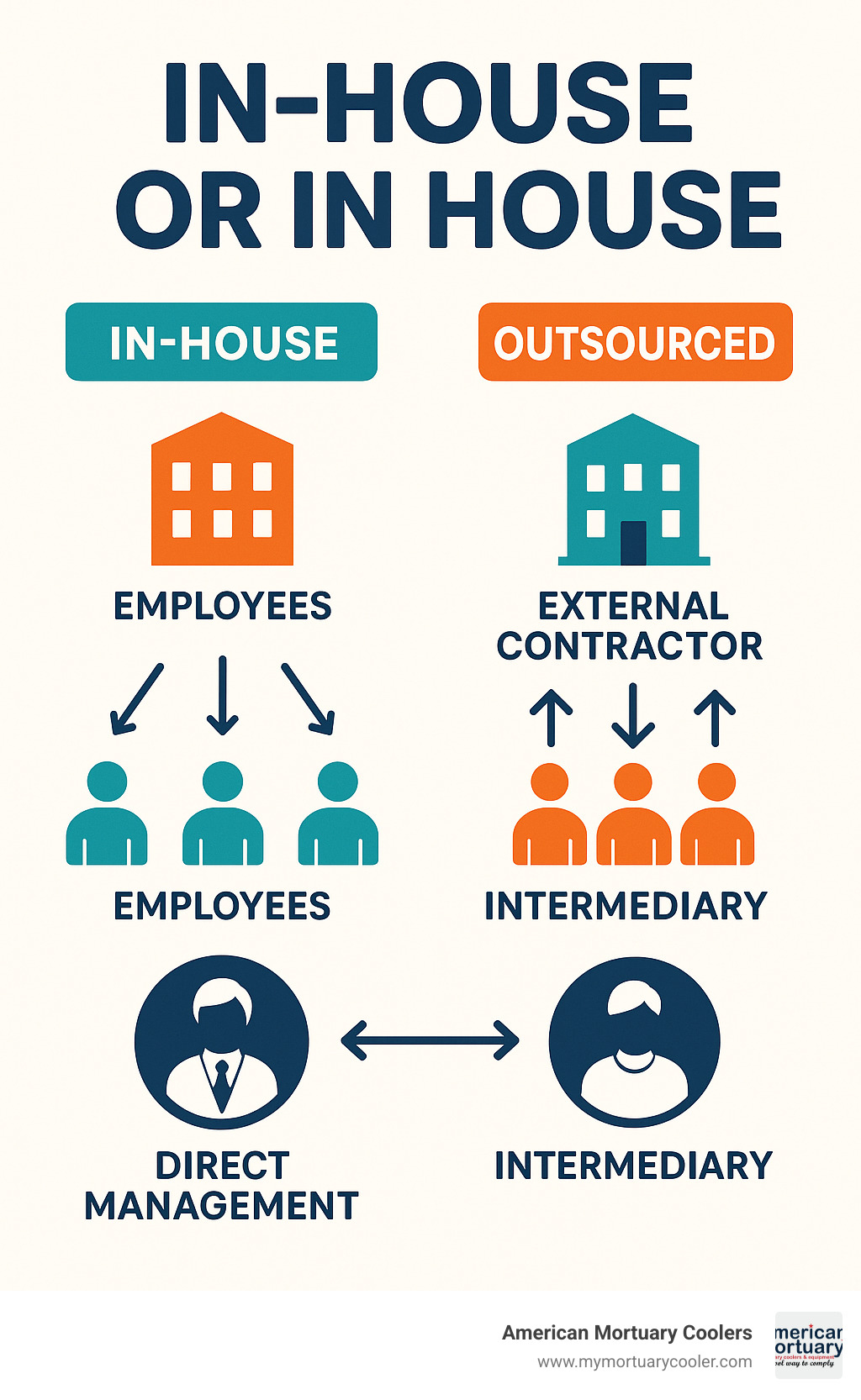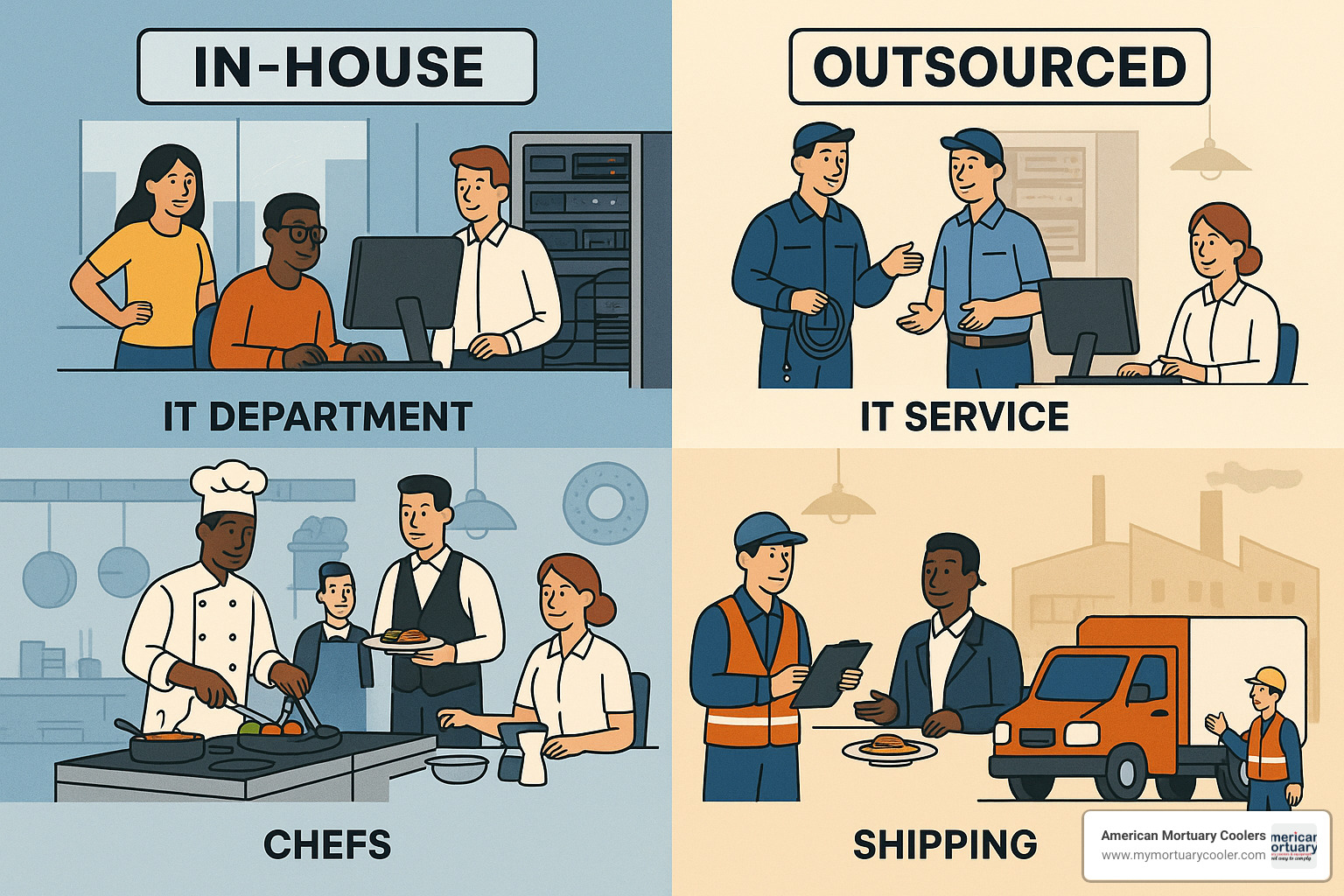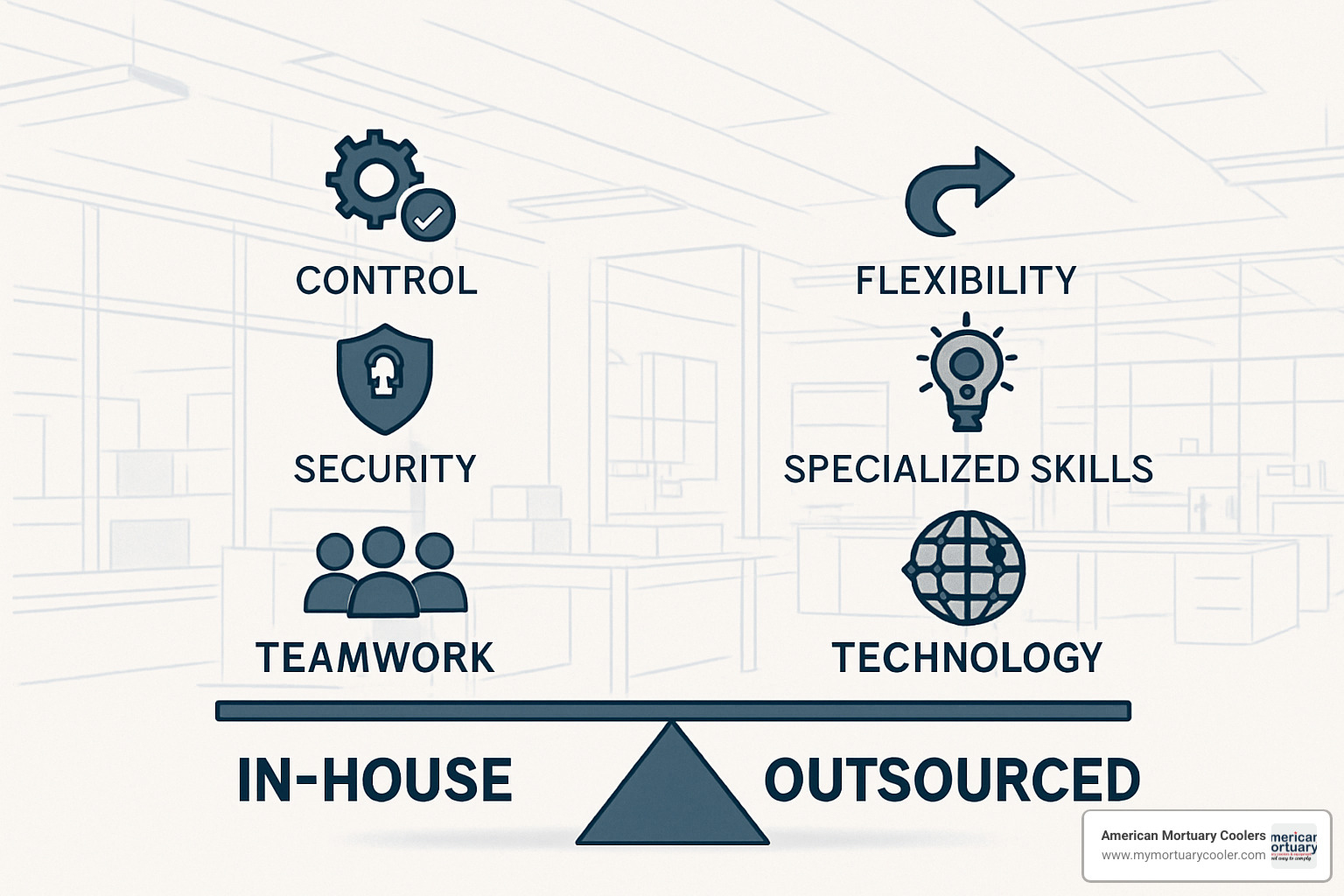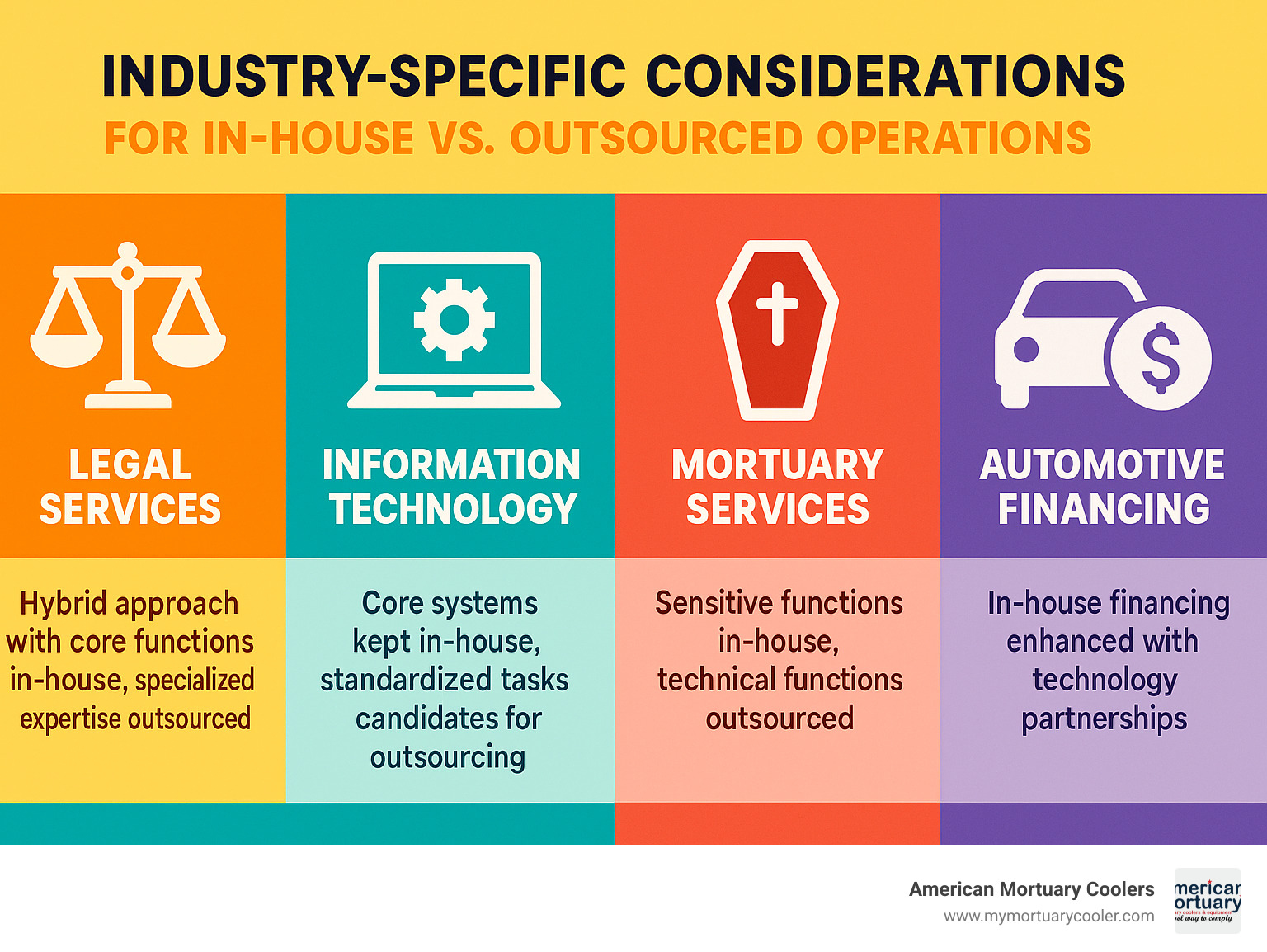
Everything You Need to Know About "In House" vs. "In-House" Usage
Understanding "In House or In-House": What You Need to Know
When discussing in house or in house terminology, it's important to understand the correct usage and meaning:
| Term | Definition | Usage |
|---|---|---|
| In-house (with hyphen) | Activities performed within an organization by employees rather than external contractors | Correct form in business English (adjective or adverb) |
| In house (without hyphen) | Common misspelling or informal variant | Not recommended in professional writing |
In-house refers to any activity, operation, or service that is created, managed, or performed within an organization rather than being outsourced to external providers. First recorded between 1955-1960, this term has become essential business vocabulary across industries.
The hyphenated form "in-house" is the standard spelling in professional contexts. Whether you're discussing in-house legal teams, in-house development, or in-house financing, the hyphen connects the concept of internal operations.
The main advantages of keeping operations in-house include greater control over processes, direct alignment with company culture, improved communication, deeper institutional knowledge, and potential long-term cost savings.
However, in-house operations also present challenges like higher initial setup costs, limited access to specialized expertise, and potential resource constraints for smaller organizations.
I'm Mortuary Cooler, a national-level mortuary cooler supplier with extensive experience helping funeral directors evaluate in house or in-house service models versus external vendor relationships.

Quick look at in house or in house:
- a comprehensive guide to the role of in-house counsel
- a practical guide to in-house vs outsourcing: key comparisons
- a-z guide to mortuary prep room equipment options
Understanding "In-House": Definition, History & Grammar
The term "in-house" first appeared in business vocabulary around the mid-1950s, as post-war America experienced a business boom. As companies grew larger and more complex, they needed language to distinguish between work done internally versus externally.
When using in house or in-house in writing, the hyphenated version is correct in professional settings. This hyphen connects "in" and "house" to show they function as a single concept rather than separate words.
Grammatically, "in-house" works as both an adjective when describing a noun ("We have an in-house designer") and as an adverb when it tells where something happens ("We handle all our design work in-house).
In pronunciation, it's /ˈɪnˌhaʊs/ with emphasis on the first syllable. Instead of "in-house," you might sometimes hear terms like "internal," "domestic," or "intramural."
This concept isn't unique to English. The French say "interne," Spanish speakers use "interno," Germans have "hausintern," and in Japanese it's "社内" (shanai).
Linguistic Roles and Sentence Patterns
"In-house" follows a common English pattern—a preposition ("in") joins with a noun ("house") to create a compound modifier. The hyphen signals these words work together as a team.
When "in-house" comes before the noun it modifies, always use the hyphen:
"We have an in-house mortuary specialist." (correct) "We have an in house mortuary specialist." (incorrect)
When it follows the noun, some style guides say you can drop the hyphen, but in business writing, keeping it is generally preferred:
"Our mortuary specialist works in-house." (most common) "Our mortuary specialist works in house." (less common)
Google Books data shows the hyphenated form has consistently dominated since the 1960s, confirming the hyphen is standard in both casual and formal business writing.
More info about in-house services
Common "In-House" Collocations
Certain phrases containing "in-house" have become standard business vocabulary:
- In-house testing: When companies evaluate products using their own facilities
- In-house counsel: Attorneys who are employees rather than outside lawyers
- In-house financing: Financial services offered directly by a business
- In-house development: Internal creation of products or software
- In-house training: Employee education conducted by the organization
- In-house magazine: Internal publications for employee communication
These phrases carry meanings beyond their literal definitions. When we say we handle manufacturing in-house at our Tennessee facility, we're emphasizing our commitment to quality control, specialized expertise, and ability to customize solutions for each funeral home's needs.
In House or In-House? Style, Hyphenation & Search Intent
Is it "in house" or "in-house"? This small hyphen makes a big difference in professional writing. When I talk with funeral directors about their operations, this question comes up surprisingly often.
Major style guides agree on this point. The Associated Press (AP) Style Guide recommends using the hyphen when "in-house" comes before a noun. The Chicago Manual of Style says the same thing. When in doubt, go with the hyphen.
What's fascinating is what we see in search data. When people type "in house or in house" into Google, they're usually confused about which spelling is correct.
Here's what the numbers tell us:
| Term | Google Search Volume | Usage in Published Books | Professional Preference |
|---|---|---|---|
| In-house | Higher (80-85%) | Dominant (>90%) | Standard form |
| In house | Lower (15-20%) | Minimal (<10%) | Generally avoided |
While "in house" does appear in casual writing, the professional world strongly prefers "in-house."
Hitting the SERP Sweet Spot for "in house or in house"
When it comes to search engine results pages (SERPs), a common challenge is keyword cannibalization – when multiple pages compete for the same term. For mortuary services considering whether to keep operations in-house or in house, this can impact how easily clients find your information.
People searching this term are usually looking for education, not making a purchase. They want to know which spelling is correct.
The most common questions include "Is it in house or in-house?", "What's the difference between in house and in-house?", and "What are the grammar rules for in-house?"

Writing for Users Searching "in house or in house"
When helping funeral homes understand whether to keep mortuary services in-house or outsource them, I focus on creating content that's both helpful and findable:
- Directly answer the question about proper usage with clear authority
- Include both variations in title tags and meta descriptions
- Use headers, bullet points, and tables for easy scanning
- Include real-world examples showing correct usage in different contexts
By focusing on these aspects, we better serve funeral directors seeking clarity on this common grammatical question while improving visibility in search results.
Business Lens: In-House vs. Outsourcing Decisions
The choice between keeping operations in-house or outsourcing them is a strategic business decision with far-reaching implications. At American Mortuary Coolers, we manufacture our custom coolers in-house while helping funeral homes determine which functions make sense to maintain internally.
Most businesses start by looking at costs. In-house operations typically need a bigger upfront investment but can save money over time by eliminating vendor markups. Outsourcing usually requires less initial cash but might cost more long-term.
Control and security are huge factors too. With in-house teams, you get direct oversight and immediate accountability—something particularly important in the mortuary industry where dignity and compliance are absolute necessities.
Your company culture matters in this decision. In-house teams naturally absorb and reflect your organization's values and mission, which is especially crucial for funeral homes providing services that require genuine compassion.
A Practical Guide to In-House vs Outsourcing: Key Comparisons
Advantages of Keeping Operations In-House
Maintaining in-house operations offers several distinct advantages:
- Intellectual property protection: Tighter control over proprietary knowledge
- Faster feedback loops: Immediate implementation of improvements without waiting for external approval
- Brand alignment: Internal staff develop deeper understanding of company values
- Specialized expertise: Building unique knowledge that becomes part of your company's DNA
- Direct quality control: Ensuring reliability at every stage
Disadvantages & Risks of In-House Operations
Keeping operations in-house also presents challenges:
- Overhead costs: Significant fixed expenses including salaries, benefits, and facilities
- Talent acquisition: Finding specialized expertise can be difficult in many markets
- Employee retention: Turnover can be particularly disruptive for specialized operations
- Scope creep: In-house teams often gradually take on responsibilities beyond their core expertise
- Resource limitations: Seasonal fluctuations can strain in-house resources

Cost Considerations & Budget Models
Understanding the financial aspects of in-house versus outsourced operations requires examining different budget models.
The financial conversation typically starts with CapEx versus OpEx considerations. In-house operations usually involve significant upfront capital expenditures, while outsourcing generally follows an operational expenditure model with predictable monthly fees.
The break-even timeline varies by facility size. Smaller facilities with 1-3 coolers typically reach break-even in 7-10 years. Medium-sized operations with 4-8 units cross that threshold in 4-6 years. Larger facilities with 9+ coolers see the quickest return, often in just 2-3 years.
Organizations typically spend 15-25% more in the first year for in-house operations compared to outsourcing. By year three, stable in-house operations usually cost 5-15% less than outsourced alternatives. By year five, mature in-house operations often deliver 20-30% savings.
Building and Managing Effective In-House Teams
Creating successful in-house teams isn't just about hiring—it's about building something special that grows with your business. At American Mortuary Coolers, we've developed our manufacturing expertise through thoughtful team building that balances technical skills with company values.
Finding talent starts with smart recruitment pipelines. We've formed relationships with technical schools throughout Tennessee and created apprenticeship programs that give newcomers hands-on experience while letting us identify promising talent early.
Internal mobility helps us retain our best people. A technician showing leadership potential might move into a team lead role, while someone with customer service skills might transition to our client consultation team. This cross-training creates versatility while deepening our collective knowledge.

The digital revolution has transformed how our in-house teams operate. While our production facilities require physical presence, many functions now collaborate virtually. Our design team shares prototypes digitally with our production floor, while customer service representatives connect with clients nationwide from various locations.
Successful in-house teams thrive with clear documentation and regular knowledge-sharing. We balance workloads carefully and ensure achievements are recognized—whether it's an individual who solved a tough technical problem or a team that completed a rush order for a funeral home in need.
In-House Recruitment vs External Agencies
The choice between in-house recruitment and external agencies mirrors the larger in-house/outsourcing question.
In-house recruiters typically take longer initially but become more efficient as they develop deeper understanding of your business. At American Mortuary Coolers, our specialized technical roles take our internal team about 45-60 days to fill, while agencies might deliver candidates in 30-40 days. However, candidates our team finds tend to stick around longer because they're better matches for our unique culture.
Employees who join us through internal recruitment show 25% longer average tenure and are 40% more likely to earn promotions. Our recruiters truly understand what makes someone successful in our company—not just technical skills, but appreciation for the sensitivity of the funeral industry we serve.
A Comprehensive Guide to the Role of In-House Counsel
Remote Work and the Modern "In-House" Concept
What does in-house mean when your team might be spread across different states? The concept has evolved from physical location to something more about relationship and integration with your company.
The distinction between employees and contractors remains crucial. W-2 employees, regardless of location, are truly part of your in-house team—you manage their taxes, provide benefits, and often supply equipment. They're integrated into your company structure in ways that 1099 contractors simply aren't.
At American Mortuary Coolers, we maintain W-2 relationships with our remote team members because it creates stronger alignment with company values. The nationwide talent pool has strengthened our ability to serve funeral homes across all 48 contiguous states with local knowledge and support.
Industry-Specific Considerations
The decision to keep functions in-house looks different across industries:
- Legal services: Many organizations choose a hybrid approach—keeping routine legal matters in-house while bringing in specialized external counsel for specific situations
- IT functions: Core systems often remain internal, while standardized functions might be outsourced
- Funeral industry: Direct care of the deceased, family consultations, and memorial service coordination typically remain in-house, while specialized technical functions might be outsourced
- Automotive financing: Ford Credit's collaboration with AutoFi demonstrates how established in-house capabilities can be improved with specialized technology partnerships
- Healthcare: Strict regulatory requirements often favor in-house compliance teams with deep institutional knowledge

Frequently Asked Questions About "In-House"
What's the main advantage of going in-house?
When people ask about the biggest benefit of keeping operations in-house, I always come back to one word: control. There's something powerful about having your team under your own roof, working directly toward your company's vision.
This control touches everything. Your team protects intellectual property, maintains consistent brand messaging, and builds institutional knowledge that grows more valuable over time.
For funeral homes, this advantage becomes even more meaningful. Their in-house staff develops a deep understanding of the sensitivity their work requires and the unique needs of their community.
Communication flows more naturally too. When everyone works for the same organization, they share common goals and cultural context. Decisions happen faster, and feedback loops tighten.
While you'll typically invest more upfront for in-house operations, many partners find the long-term benefits outweigh these initial costs, especially for core functions that define service quality.
When should a company outsource instead of staying in-house?
Not everything belongs in-house, and recognizing when to partner with external experts is just as strategic. Several situations where outsourcing makes sense:
- When specialized expertise is needed only occasionally
- For functions with fluctuating demands throughout the year
- Tasks that don't directly contribute to your competitive advantage
- When the expertise needed is too expensive to develop in-house
At American Mortuary Coolers, we keep manufacturing in-house to ensure quality control, but partner with specialized logistics companies for nationwide delivery rather than maintaining our own fleet.
How does in-house recruitment differ from using a staffing agency?
In-house recruiters become deeply embedded in your organization's culture. They understand what makes someone successful in your specific environment and focus on long-term fit, considering how candidates might grow with your organization over years.
While in-house recruitment involves higher fixed costs upfront, many organizations find their per-hire costs decrease over time as recruiters refine processes and build candidate networks.
Staffing agencies bring different strengths. As external partners working with multiple clients, they often specialize in specific industries or roles, maintaining established candidate networks that provide quick access to talent. They typically charge per placement (usually 15-30% of first-year salary).
Many funeral homes use a hybrid approach—maintaining in-house recruitment for core family service positions while leveraging agencies for specialized technical staff or during high-volume hiring periods.
Conclusion
The distinction between "in house" and "in-house" goes beyond that little hyphen—it represents a fundamental choice about how businesses operate and where they invest resources.
Throughout our journey, we've seen that "in-house" (with that trusty hyphen) is the professional standard in business writing. This isn't just grammar nitpicking—the hyphen connects the concept into a unified idea representing internal operations.
When deciding whether to keep functions in-house or outsource them, businesses face a balancing act. Here at American Mortuary Coolers, we've experienced this firsthand. We've chosen to keep manufacturing in-house at our Tennessee facilities because it gives us complete control over quality. Every mortuary cooler we craft reflects our commitment to excellence and attention to detail.
This approach has allowed us to develop deep expertise in a specialized field. Our team understands the unique needs of funeral homes—not just technical aspects of refrigeration, but the importance of reliability and dignity in the funeral profession.
At the same time, we recognize that for many funeral homes, maintaining technical expertise in-house doesn't always make sense. That's why we offer specialized maintenance services that let you focus on serving families with compassion during difficult times.
The meaning of "in-house" continues to evolve with the modern workplace. Today, it's less about physical location and more about relationship, culture, and alignment. Your in-house team might work from different cities or states, but they're united by shared values and commitment to your mission.
Whether you're polishing your business writing or making strategic decisions about operational structure, understanding the nuances of in-house or in-house operations provides a foundation for choices that align with your goals and values.
Keeping Your Facility Running Smoothly: Why MyMortuaryCooler.com is Your Best Choice



